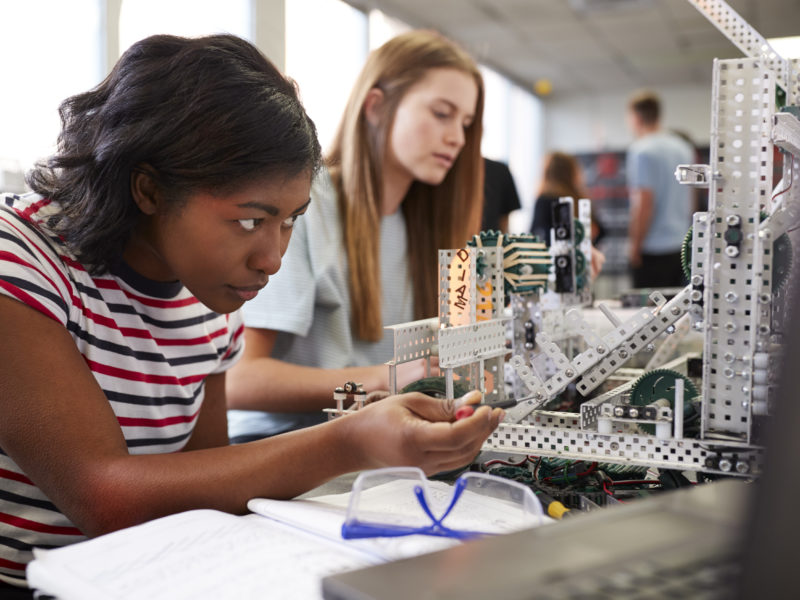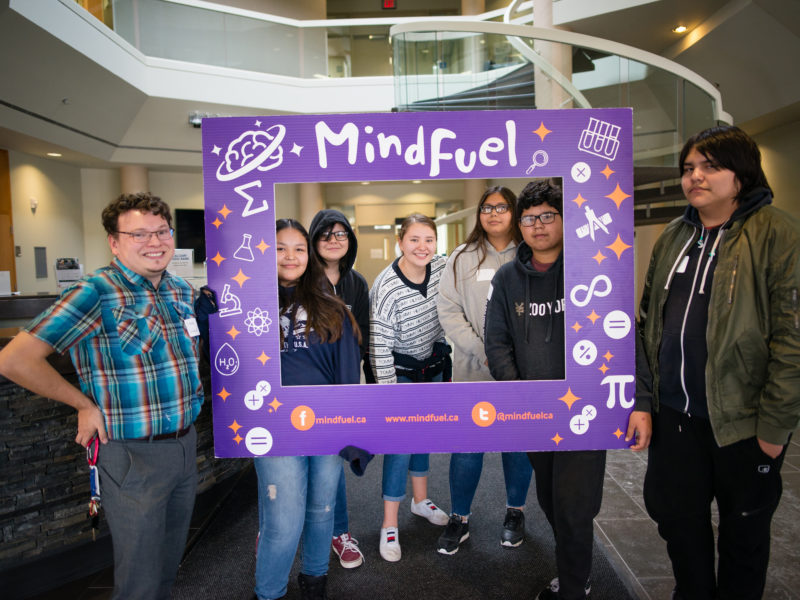Youth
Research
Inclusive STEM Pedagogies in K-12 Education
The purpose of this project is to review research and literature that recognizes current strengths but also identifies gaps in existing resources. This will help properly inform future curricular and educational decisions that nurture strong foundations for diversity, equity, accessibility and inclusion in the digital workforce.
Project
Tech Futures Initiative
MindFuel came alongside Indigenous communities to address the barriers faced by Indigenous youth in rural and remote communities by implementing STEM and innovation programs for youth.
Project
The Study Buddy Program
The Study Buddy program connected families, children in grades K–12 and teacher candidates. It had three objectives: skills development among children and youth, particularly Black, Indigenous, racialized and newcomer populations; skills development among post-secondary students (tutors); and (3) skills and capacity development among parents and guardians.
Research
AI-PowerED: Will AI Change Postsecondary Teaching and Learning?
What are the perceived impacts of generative artificial intelligence (AI) on postsecondary teaching and learning? In this research, we discuss the findings of our interviews with 42 individuals who are leading or supporting AI integration in postsecondary institutions (PSIs).
Research
From Campus to Career
This research examines labour market outcomes of international college students studying in Canada. How do employment outcomes of international students differ from those born in Canada? What challenges do international college students face finding meaningful work? How can colleges improve support for these students?
Research
Hidden Struggles: Situating Neurodiversity in Post-Secondary Education
In this research, we look at the challenges neurodiversity poses for both post-secondary institutions and neurodiverse students. This study will be the first in Canada to explore how different types of institute approach inclusion for neurodiverse students.
Research
Making the Invisible Visible: Neurodivergent Students’ Experiences in Canadian Higher Education
Despite increasing enrolment rates, neurodivergent students are less likely to graduate than their neurotypical peers. Canadian postsecondary institutions (PSIs) are striving to make post-secondary education...
Project
Reality, Education and Applied Life Skills (R.E.A.L.) School
Urban Rez Solutions Social Enterprise developed Reality, Education and Applied Life Skills (R.E.A.L.) School so that Black, Indigenous and racialized youth in socio-economically challenged neighbourhoods can identify and pursue their career interests.
Project
Experiential Learning in Innovation, Technology, and Entrepreneurship (ELITE) Program for Black Youth
This initiative aimed to close workforce disparities by equipping Black youth with practical skills in high-demand areas like robotics, automation and advanced manufacturing.










